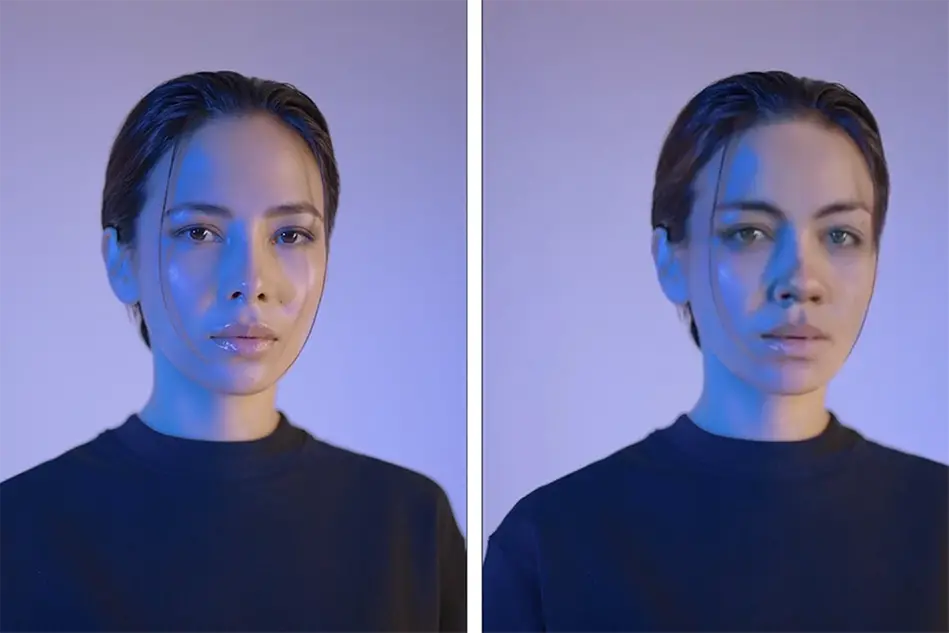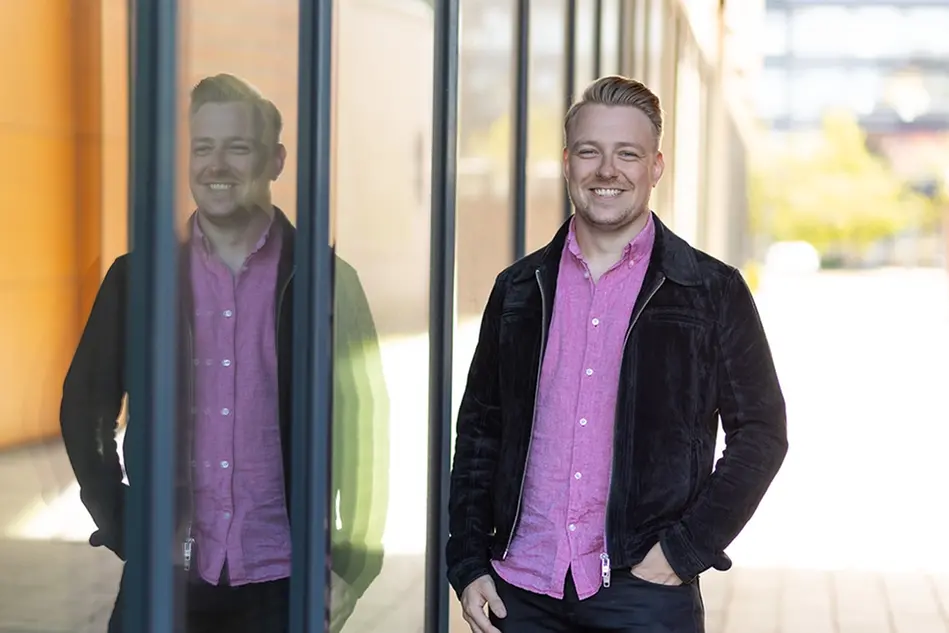AI-generated faces help preserve privacy in data-driven systems
How can AI be used to anonymise faces in a realistic way, without losing important information in the visual material? In his doctoral thesis in Information Technology, Felix Rosberg explores this question. The results open up new possibilities for the secure and ethical handling of data, for example in the automotive industry.

In Felix Rosberg’s doctoral thesis, innovative methods are presented for anonymising faces using generative AI.
When large volumes of image data are used in research or technological development, it is crucial to protect individuals’ identities while retaining as much information in the images as possible. In a doctoral thesis from Halmstad University, innovative methods are presented for anonymising faces using generative AI. These new methods provide increased control over which synthetic identity that is used and take key safety aspects into account to prevent identity disclosure.
“Instead of blurring or covering a face, we use generative AI to alter its appearance in a way that preserves, for example, facial expressions and the direction in which someone is looking. This means that the image data retains its realism and usability, while neither people nor facial recognition algorithms are able to identify the individual”, says Felix Rosberg, who completed his PhD at the end of April.

Felix Rosberg defended his doctoral thesis in April, 2025.
A crucial piece of the AI development puzzle
Preserving the realism of an image is essential for developing and testing technological solutions where AI needs to interpret and understand human behaviour. This could include self-driving vehicles or advanced driver assistance systems, where eye movements and facial expressions can provide valuable information. Realistic yet anonymised data enable innovation without violating privacy laws or ethical guidelines.
“Almost all current methods have a vulnerability that allows a malicious actor to learn patterns in anonymised images and reconstruct the original identity”, explains Felix Rosberg.
However, methods involving AI-generated faces do not have this vulnerability. Felix Rosberg’s doctoral research aims to enable secure data collection, data sharing and collaboration in a data-driven society.
“My goal with this research is to enable data processing that preserves essential information, while also respecting privacy and complying with the General Data Protection Regulation.”
Moving into the tech industry
After completing his doctorate, Felix Rosberg has moved on to a new role within the company Zenseact, which focuses on AI and deep learning.
“It’s now more about data mining than anonymisation but it’s a fairly similar field where I can apply my expertise. Hopefully, I’ll find a way to keep one foot in academia in the future – ideally at Halmstad University!
Text: Emma Swahn
Photo: Katarina Tran (portrait), Felix Rosberg (collage)
Felix Rosberg’s educational background
Felix Rosberg holds an MSc in Computer Engineering and has completed his Bachelor’s, Master’s, and doctoral studies at Halmstad University. During his doctoral studies, he was an industrial PhD student at Engage Studios. His research was carried out in collaboration with his supervisors Professor Cristofer Englund, Associate Professor Eren Aksoy Erdal, and Professor Fernando Alonso-Fernandez from Halmstad University. He also collaborated with Professor Vitomir Štruc from the University of Ljubljana in Slovenia while writing his final paper. During his studies, he has been a part of the postgraduate research school Smart Industry Sweden.
More information
Research at the School of Information Technology External link.
External link.
Read Felix Rosberg’s thesis:
Non-Reversible and Attribute Preserving Face De-Identification External link.
External link.
The latest work from Feliz Rosberg’s thesis External link.
External link.
Earlier iteration of Felix Rosberg’s thesis work External link.
External link.

